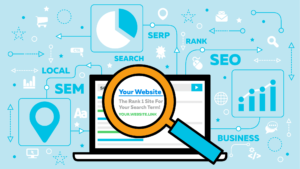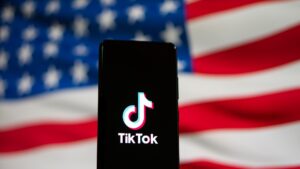[ad_1]
Social media has revolutionized how businesses connect with customers in ecommerce. Facebook, Instagram, and Twitter are vital to ecommerce these days.
Using social media for ecommerce is like using a railroad for commuters; it provides an easy way to connect two points quickly, efficiently, and reliably. This connectivity allows businesses to reach an increasingly wide range of customers and customers to contact businesses more easily.
Alongside the best traditional social media practices, ecommerce businesses can unlock new avenues for growth and deeper customer engagement by combining professional networking platforms and artificial intelligence.
Join us as we navigate through the intersection of social media, professional networking platforms, and artificial intelligence, unraveling the keys to unlocking ecommerce triumph.
How Does Social Media Influence Ecommerce?
Social media has revolutionized how businesses connect with their target audiences and drive success. The following points demonstrate how social media has changed how products go from virtual shelves to figurative carts.
- Direct communication opportunities: Social media platforms such as Facebook, Instagram, and Twitter allow businesses to communicate directly with customers, either one on one or within a targeted group. Customers feel heard and valued on social media compared to other communication channels, leading to increased brand loyalty.
- Unparalleled brand visibility: With millions of active users, social media platforms offer vast audiences for businesses to showcase their products or services. In addition, visually appealing content, captivating captions, and strategic use of hashtags enhance brand exposure and attract potential customers.
- Social media advertising: Social media platforms offer advertising capabilities that allow businesses to target specific demographics or audience segments. Companies can create tailored messages and advertisements that reach their ideal customers by leveraging demographic information and user behavior data.
- Fuels product discovery: Product discovery is when consumers unintentionally find new products, like through visually appealing content on Pinterest or by watching their favorite influencers. Online marketplaces like Amazon introduce consumers to new products based on their interests or browsing history. These channels allow businesses to capture consumers’ attention seeking inspiration or exploring new options.
In today’s digital landscape, it’s nearly impossible for an ecommerce business to achieve success without leveraging the power of social media. But it’s not all fun and games. There’s a more serious side to social media that ecommerce businesses should consider exploring.
The Professional Side of Social Media
Professional networking platforms offer ecommerce businesses a unique opportunity to tap into a vast network of professionals and unlock new avenues for growth. LinkedIn, in particular, stands out as a platform that can significantly enhance ecommerce efforts, though it’s often ignored.
Here are some tips on how ecommerce businesses can leverage LinkedIn effectively:
- Build a strong profile: Showcase your brand identity, expertise, and products on your LinkedIn profile to make a strong impression on potential customers and industry professionals.
- Connect with relevant professionals: Identify and connect with your target market’s decision-makers, industry experts, and potential customers to establish valuable connections and expand your network.
- Share valuable content: Utilize LinkedIn’s publishing platform to share insightful articles, tips, and industry trends. Position yourself as a thought leader and build credibility within your industry.
- Engage through personalized video outreach: Stand out by using personalized video messages to personally engage with potential customers. This approach helps establish trust and build meaningful connections.
- Join relevant groups: Participate in LinkedIn groups related to your industry or target audience. Engage in discussions, share your expertise, and connect with like-minded professionals.
- Utilize LinkedIn Ads: Use LinkedIn’s advertising platform to target specific demographics and reach your ideal customers with tailored messages.
- Monitor industry insights: Stay updated with industry news, trends, and discussions by following relevant companies, thought leaders, and industry groups on LinkedIn.
By implementing these tips, eCommerce businesses can use LinkedIn’s professional networking platform to establish meaningful connections and achieve eCommerce success.
However, tapping into the potential LinkedIn and other professional networking platforms offer ecommerce brands is a lot of work. And if a marketing team is already stretched thin, taking on another marketing channel can seem impossible and even irresponsible. However, there’s a way to lighten the load without leaving opportunities behind.
AI and E-commerce – A Dynamic Duo
Image Courtesy: Tara Winstead – Pexels
Artificial intelligence in social media can lead ecommerce businesses to grow and provide personalized experiences that deeply connect with customers. Here are several ways AI technology is changing ecommerce.
AI-powered product recommendations
AI algorithms analyze customer data and purchasing behavior to provide personalized product recommendations. By understanding individual preferences, ecommerce businesses can deliver relevant suggestions, enhancing the customer shopping experience.
Tip: Boost customer engagement and drive conversions by implementing AI algorithms that analyze customer data and provide personalized product recommendations.
AI-driven chatbots
Chatbots integrated into social media platforms offer instant and automated customer support, addressing inquiries, providing product information, and assisting with purchases. In addition, AI-powered chatbots enable businesses to deliver prompt responses, even outside business hours.
Tip: Enhance customer satisfaction and streamline customer support by implementing AI-driven chatbots on social media platforms to provide instant and automated assistance.
Automated customer service
Like social media chatbots, AI-driven website systems can handle customer inquiries, process returns, and refunds, and provide real-time assistance. Automating customer service processes can reduce response times and improve the customer experience while streamlining operations.
Tip: Train an AI-powered chatbot on your ecommerce website to handle common customer inquiries, process orders, and provide product information.
Using AI-driven technologies, ecommerce businesses can improve customer experiences, optimize operations, and drive business growth. But there’s one AI superpower that can impact ecommerce success.
AI and Social Media Content
AI can completely change your social media content creation process. But first, here’s how to incorporate AI into your overall social media strategy.
- AI-Driven content creation: AI-powered tools can generate compelling and relevant content ideas based on user preferences and trending topics. This relevance can save time and help you create branded content and engaging posts that resonate with your audience.
- Automated scheduling: AI algorithms can analyze user behavior patterns and optimal posting times to automatically schedule your social media content for maximum reach and engagement.
- Image and video enhancement: AI technologies can enhance the visual appeal of your social media content by improving image quality, applying filters, and even creating personalized videos that grab attention.
- Sentiment analysis: AI algorithms can analyze user comments and sentiments to gauge the overall response to your content. This valuable insight lets you fine-tune your social media strategy and promptly address customer concerns.
- Targeted advertising: AI-driven tools enable precise audience targeting based on demographic, interests, and behaviors. This precision helps you deliver tailored messages and promotions to the right people at the right time.
Tips for using AI in social media content
- Research and select the right AI tools that align with your social media goals and target audience.
- Train your AI algorithms with high-quality data to improve accuracy and relevance.
- Regularly analyze AI-generated insights to refine your content strategy and optimize performance.
- Experiment with different AI-generated content formats, such as personalized videos or interactive quizzes, to keep your audience engaged.
- Stay informed about AI advancements and industry trends to continuously enhance your social media content.
Incorporating AI into your social media content strategy will streamline your creative processes and deliver more impactful experiences that resonate with your audience.
[ad_2]
Source link








